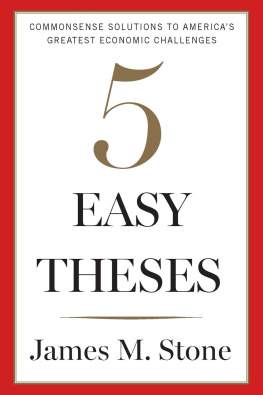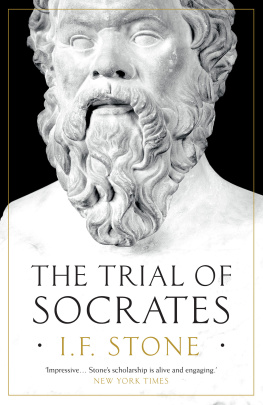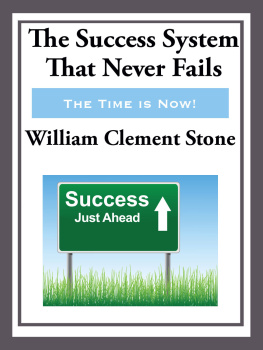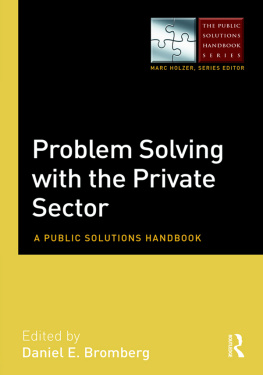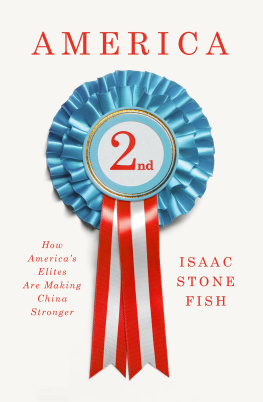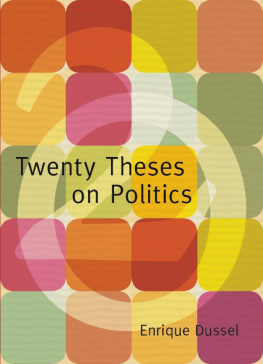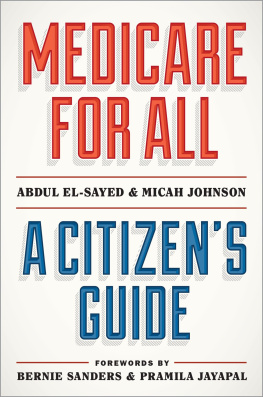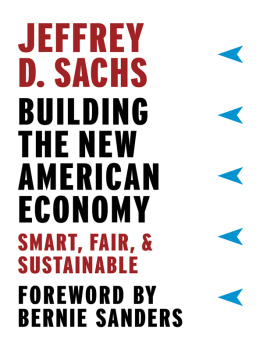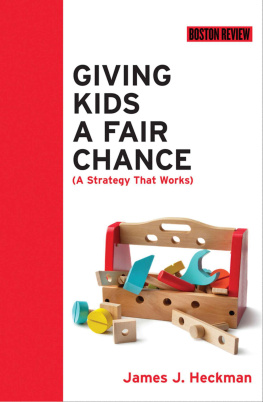Copyright 2016 by James M. Stone
All rights reserved
For information about permission to reproduce selections from this book, write to or to Permissions, Houghton Mifflin Harcourt Publishing Company, 3 Park Avenue, 19th Floor, New York, New York 10016.
www.hmhco.com
Library of Congress Cataloging-in-Publication Data is available.
ISBN 978-0-544-74900-9
Cover design by Michaela Sullivan
e ISBN 978-0-544-74965-8
v1.0516
Introduction and Foundations
LET ME EXPLAIN the title of this book. Americans, on the whole, are deeply dissatisfied with the inability of our government to solve a host of obviously consequential problems. Some are genuinely hard to solve because they dont have solutions that equitably resolve nasty tradeoffs between winners and losers. But the paralysis today is worse than that. Our system cant even seem to deal with eminently solvable problems.
This book is about five of those. It presents straightforward answers to several of todays most important public policy issues. Or, more precisely, it asserts that straightforward logical answers to some issues are staring us in the face, yet there seems to be no political path to their resolution. I hope you will declare this an unacceptable state of affairs. Worse still, the key issues are too seldom part of what passes for political debate these days. Politicians in both parties steer away from exactly the subjects they ought to be addressing in favor of sound bites, gotchas, and mini-matters. My book title, I admit, is slightly facetious because the logic of the five issues is not entirely beyond debate and the politics may appear hopeless. But I wanted to make the point that these are issues politicians should stop running from. An alternative title for the book was Too Big to Touch. Please dont mistake the conversational tone or intentional lack of bombast in what follows for a belief that the recommendations offered here are of small consequence or could be readily enacted. Together, they are transformative and thus would be heartily resisted.
Americans disagree about many things, and so it shall always be, but I would wager at pretty good odds that most of you share the concerns embodied in these five questions:
Are you confident that Social Security and Medicare will be solvent enough to meet their promises when you and your children need them?
Do you want to live in a society in which a tiny fraction of the public and a few corporations hold a greater share of the wealth and influence than has ever been the case in America before? Can a society so tilted be as productive and stable, not to mention pleasant, as the America you grew up in?
Must your health care cost almost twice as much as it costs your counterparts in every other advanced nation, while our health system delivers objectively worse results than most of the others?
Why cant the schools of this affluent and admired nation train students not headed to college for realistic careers and stop busting the budgets and burdening the futures of so many who do go on to university?
Did we learn anything from the Crash of 2008? How have we allowed our financial sector to accumulate even greater derivatives positions than prior to the crash, to concentrate its assets in even fewer institutions than before, and to take home a massive and unprecedented share of the economys profits?
I am a Democrat, but this is not a partisan book. Americans of every political stripethe Right, the Left, the Center, the not-sures, and even the dont-caresshare these concerns. Many talk about our nation as adrift, with hazardous rapids not necessarily around the next bend but maybe the one right after that, and surely somewhere ahead. I am not so pessimistic, but it is true that you are not getting the deal you had counted on, and that your children have even slimmer prospects of getting it in the future. We are still the most affluent and powerful nation the world has yet produced, and at little risk of losing that status anytime soon. But most Americans today believe that we are leaving our rising generation a society in worse shape than the one we inherited. If you believe that, you are probably right... but it doesnt have to be.
As the problems grow larger, alas, it seems that our politics become smaller. It is standard fare in civics classes to describe democracys requirement that officeholders find a balance between representing and leading, between following the wishes of their constituents and acting on their convictions. Similarly, there is a recurrent debate in campaigns for office between those who want to follow the polls at some critical moment and those who want the candidate to demonstrate courage and philosophical consistency. These tensions are inevitable, but todays balance is way out of whack. Few current politicians dare to go beyond nearsighted polls, and those who do are often dismissed in the media as hopelessly outside the mainstream.
Scanning this forbidding landscape, many of you may have concluded that issues like those I have listed cannot be solved in ways that will provide any genuine benefits to you and your families. Perhaps you feel that a better life for your children has rather unexpectedly moved out of reach. America is in decline, some can be heard to complain; the century of America is in the past. To this, I say nonsense. I could hardly disagree more. This is, in fact, exactly the attitude I wish to challenge. That America has passed its peak is far from an inevitability. Ours is still the country that most favors, at least in the private and academic sectors, intellectual challenge to the established ways of doing things. And from this spring innovation and creativity no other society can match. The advantage, moreover, is proving robust. I will try to persuade you that the public sector can tap into this energy and become a worthier partner for the rest of the countryif only it would adopt some specific, commonsense policies. Only the will to act is missing; the course is relatively clear.
The course corrections I advocate are largely off the table in contemporary politics. There are three ingredients of serious political progress, and all three are currently missing. The first is clarity of visionpragmatic thinking about courses of action that will really work. I hope to provide a bit of that here. The second ingredient I cannot provide. This ingredient is political leadership, at an opportune moment for change, imbued with the unusual guts, charisma, and communications talent to champion a bold change, even if it risks defeat and the polls suggest the public isnt ready to follow yet. Politics is a tightrope for an elected official. You fall off to one side if you dont get elected. You fall off as well, though, if you waste your opportunity to lead. An election to office is a chance to demonstrate leadership, in both philosophy and action, to advance the values you believe in. Public servants without idealism, politicians who dont care about improving their slice of the world or promoting values to which they are committed, are little more than career freeloaders.
This is not, on the other hand, to suggest that all those who fail to bring about transformative change are parasites. Some of the best in public life will try and fall short. It takes more than intellect, vision, and personal courage, however admirable, to produce great leadership success. Timing counts, too. In the history of any nation, there will be moments that particularly call for tilting toward compromise and moments that call for leaning toward courage. This country has been remarkably lucky to have great statesmen who have chosen a bold leadership path and rallied public opinion in times of obvious crisis. Thats why we remember them as great. Ours are times of less apparent crisis. It remains to be seen whether, in the absence of charismatic events, leaders will riseor the times will allow them to riseto galvanize public opinion and act boldly in the common interest.
Next page
